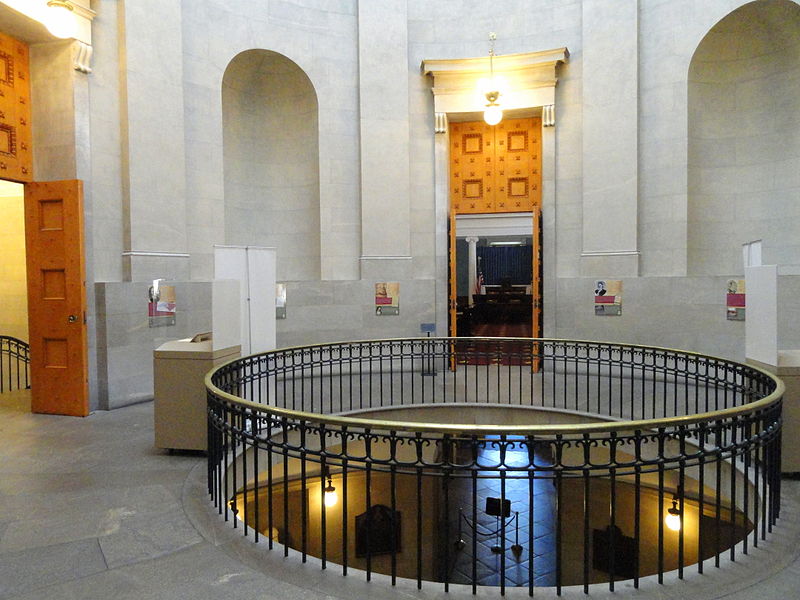North Dakota voters will decide on three constitutional amendments in November. The third measure, a citizen initiative, was certified for the ballot on Tuesday, August 11.
The initiative would amend the state constitution to make multiple changes to the election and redistricting procedures in North Dakota.
The measure would establish top-four open primaries for all statewide, legislative, and congressional races. Candidates would all appear on the same ballot with the option of listing political affiliation. Anyone could vote in the primaries regardless of their political affiliation or lack of political affiliation. The top-four candidates would proceed to the general election ballot. Voters could rank up to four candidates on the general election ballot. If a candidate receives a majority of votes, he or she would be elected. If not, the candidate with the least votes would be eliminated and votes redistributed according to voters’ next choices. This would occur in rounds until one candidate has a majority of votes.
As of 2020, in North Dakota, parties’ primary elections were open to all voters regardless of their partisan affiliation. As of 2020, in North Dakota, the winner of a party’s primary election is the candidate who receives the greatest number of votes (plurality), even if he or she does not win a majority of votes cast. The winners of each party’s primaries advance to the general election.
The measure would also make the state’s ethics commission, which was created by voters through a 2018 citizen initiative, responsible for state legislative redistricting. The initiative would require a unanimous vote by the ethics commission to set state senate districts, which would then be divided equally by population to create state house districts. It would also require public hearings on the redistricting plan, set criteria for district maps, and set other requirements and processes.
Another provision of the initiative would require a paper record for all ballots and audits of each election within 120 days by the secretary of state. And the measure would require ballots to be sent to military and overseas voters by 61 days before an election.
North Dakota Voters First reported submitting over 36,000 signatures for the initiative to the Secretary of State’s office on July 6, 2020. Secretary of State Al Jaeger (I) said that around 4,300 of the signatures submitted were rejected, meaning around 32,000 signatures were accepted. To qualify for the ballot, 26,904 valid signatures were required.
North Dakota Voters First said, “Without competition, lawmakers secure reelection even if they don’t have the best ideas or vision for their constituents. Measure 3 gives voters more than one choice in elections and incentivizes legislators to more closely listen to their constituents. […] This amendment would ensure voters are picking their politicians — not the other way around — by preventing politicians from drawing their own political boundaries. Measure 3 would establish a nonpartisan redistricting process that is transparent and fair.”
According to campaign finance reports that covered information through July 6, the campaign had raised $922,720 and had spent $676,912. The top four donors— Action Now Initiative, Campaign Legal Center, Represent.Us, and Unite America—donated 99.99% of the contributions.
The measure is opposed by Brighter Future Alliance, which said, “Until we defeat these groups at the polls, they will keep coming with measures to further upend our political institutions and undermine our state’s economy and our North Dakota way of life.”
The group filed a lawsuit in the state supreme court on August 12, 2020, seeking to block the measure from the ballot by ordering Secretary Al Jaeger to declare all signatures for the measure invalid. Brighter Future Alliance argued that the measure’s sponsors failed to meet requirements of the constitution and state law because the petitions did not include the full text of the measure and the ballot title does not accurately describe the measure. Under Section 2 of Article III of the state constitution, petitions that are being circulated must include the full text of the proposed measure. Under state law, the petition title must be a “short and concise statement that fairly represents the measure.” In North Dakota, the petition titles are drafted by the secretary of state and approved by the attorney general.
Maine is the only state with ranked-choice voting for federal and statewide primary elections and general elections for U.S. Congress.
As of 2020, no states utilized a top-four primary for state or federal elections. Top-two primaries are used in California, Nebraska, and Washington. A similar initiative to create a top-four primary and ranked-choice general system is on the 2020 ballot in Alaska. A top-four ranked-choice voting initiative may also appear on the ballot in Arkansas.
A measure to create top-two open primaries will appear on the 2020 ballot in Florida, and Massachusetts voters will decide a ranked-choice voting initiative.
In 36 of the 50 states, state legislatures are primarily responsible for state legislative redistricting. Independent commissions draw state legislative district lines in 10 states. In four states, politician commissions are responsible for state legislative redistricting.
The North Dakota state legislature referred two constitutional amendments to the 2020 ballot in North Dakota. One measure would change the structure of the State Board of Higher Education, and the other measure would require initiated constitutional amendments passed by voters to be submitted to the legislature and passed a second time by voters if not approved by the legislature.


